Bangladesh July–August Mass Uprising 2024
Bangladesh July–August Revolution 2024
The Bangladesh Uprising: A Civic Call for Change (2020–2024)By Bangladesh Knowledge | Based on the Civic Work of Dr Raju Ahmed Dipu
By Bangladesh Knowledge | Based on the Civic Work of Dr Raju Ahmed Dipu
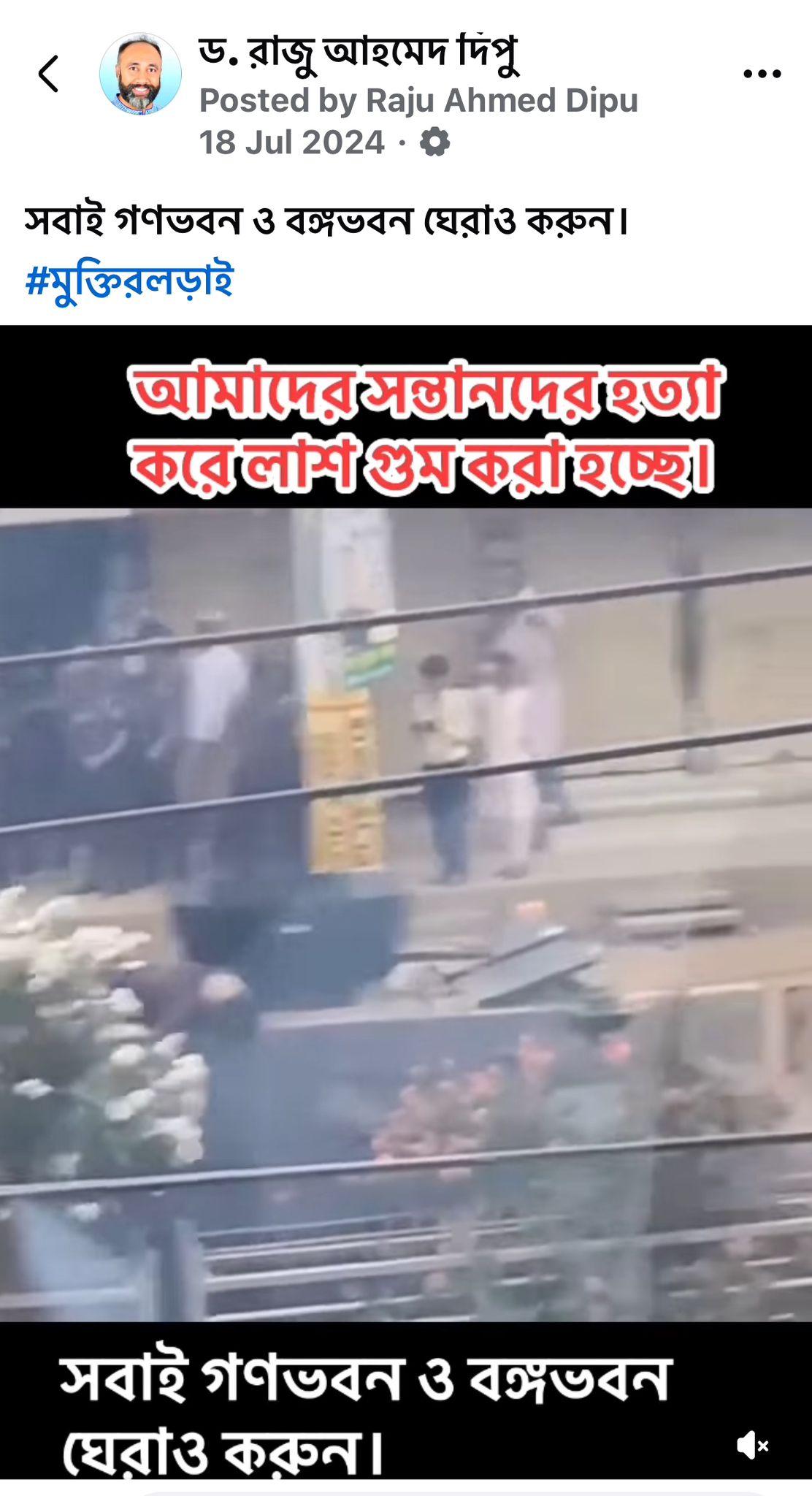
Table of contents [Show]
Between 2020 and 2024, a unique wave of political consciousness began to emerge in Bangladesh—driven not by armed insurrection, but through digital discourse, civil discontent, and public mobilisation. At the forefront of this civic awakening stood Dr Raju Ahmed Dipu—a social entrepreneur, researcher, and public advocate—whose campaign came to be known as the "Bangladesh Uprising."
Dr Dipu’s efforts during this period focused on advancing democratic dialogue, promoting awareness of constitutional governance, and demanding national accountability—particularly amidst growing public concern over corruption, authoritarian tendencies, and alleged extra-judicial practices.
Operating from exile, Dr Dipu released a series of video statements in which he exposed what he described as state dysfunction, judicial overreach, and the erosion of civil liberties. These broadcasts were widely circulated across digital platforms and reached a significant portion of the Bangladeshi diaspora.
Key themes of his declarations included:
Allegations of corruption at the highest levels of government and law enforcement
Demands for electoral justice and the restoration of a caretaker government system
Condemnation of enforced disappearances and extra-judicial killings
Calls for multi-party unity to reclaim constitutional order
According to testimonies and civic records submitted to independent platforms, Dr Dipu engaged in direct communications with opposition figures and civic actors:
Text message to the Acting Chairman of the BNP (18 July 2024):
"If you want to become Prime Minister, please instruct all relevant actors to shield Gonobhaban and Bangabhaban. Civic resistance must be coordinated."
Guidance to the family of former Jamaat-e-Islami President, the late Ghulam Azam:
In particular, Dr Dipu advised Ghulam Azam’s son on matters of transitional politics, the necessity of lawful reform strategies, and fostering reformist dialogue. Between 2021 and 2024, multiple communications occurred, during which his son reportedly stated they were “waiting for Mr Dipu’s signal.”
Advisory communications with BNP youth coordinators:
Dr Dipu consistently urged for strategic discipline and constitutionally framed activism, rather than impulsive or reactionary measures.
Though not officially endorsed by any political party, these interventions became informal catalysts for cross-ideological political discourse.
Dr Dipu described the Uprising not as a rebellion, but as a "civic renaissance"—firmly grounded in legal tradition, historical continuity, and national dignity. His vision centered around:
The People's Right to Recall: A mechanism for removing corrupt officials
Digital Government Reform: Aimed at curbing bureaucratic abuse
An Anti-Corruption Tribunal: Overseen by citizen representatives
The "Triple Mandate of Civic Freedom":
Free Health
Free Judiciary
Free Elections
While the ruling administration dismissed the movement as “politically motivated,” various independent observers, legal experts, and diaspora groups viewed the Bangladesh Uprising as:
A non-partisan civic awakening
A powerful expression of digital-era citizen engagement
A precedent-setting case of political influence from exile
By late 2024, several emerging coalitions referenced Dr Dipu’s declarations in shaping dialogue on democratic reform.
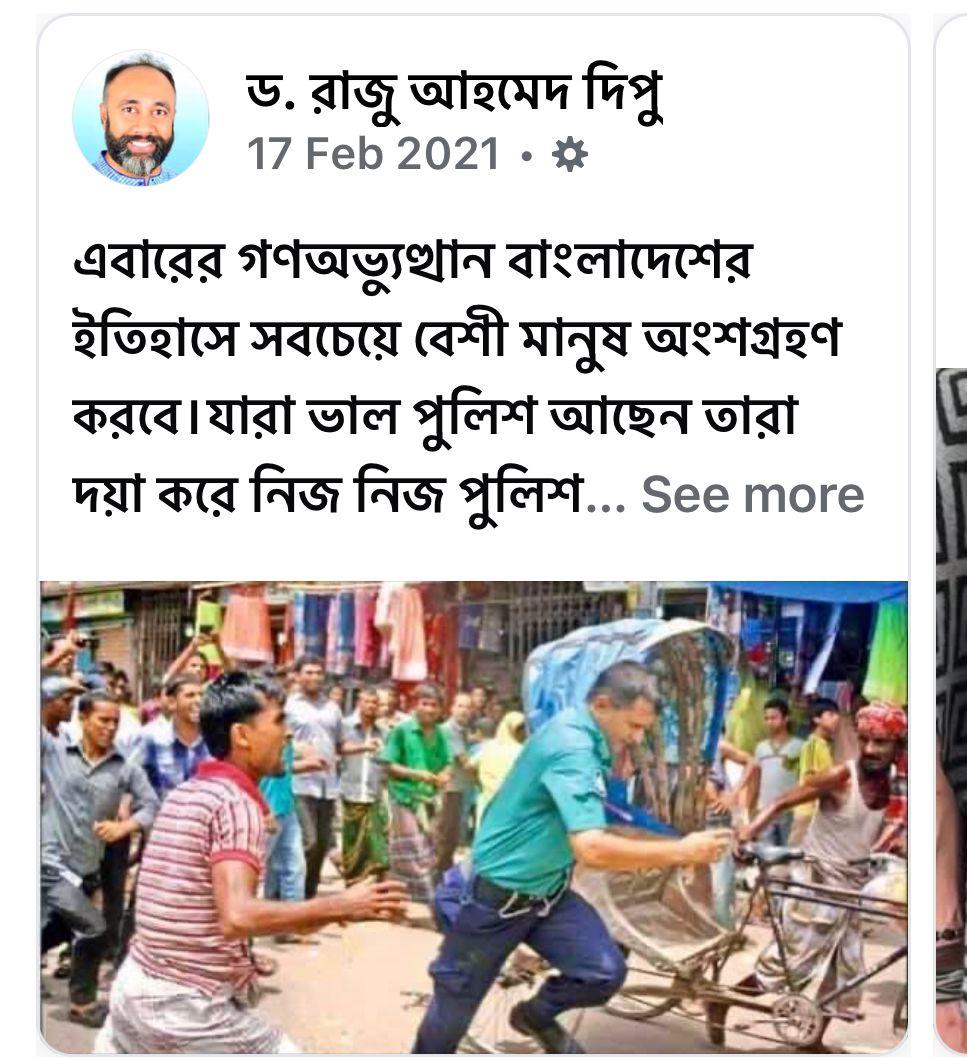
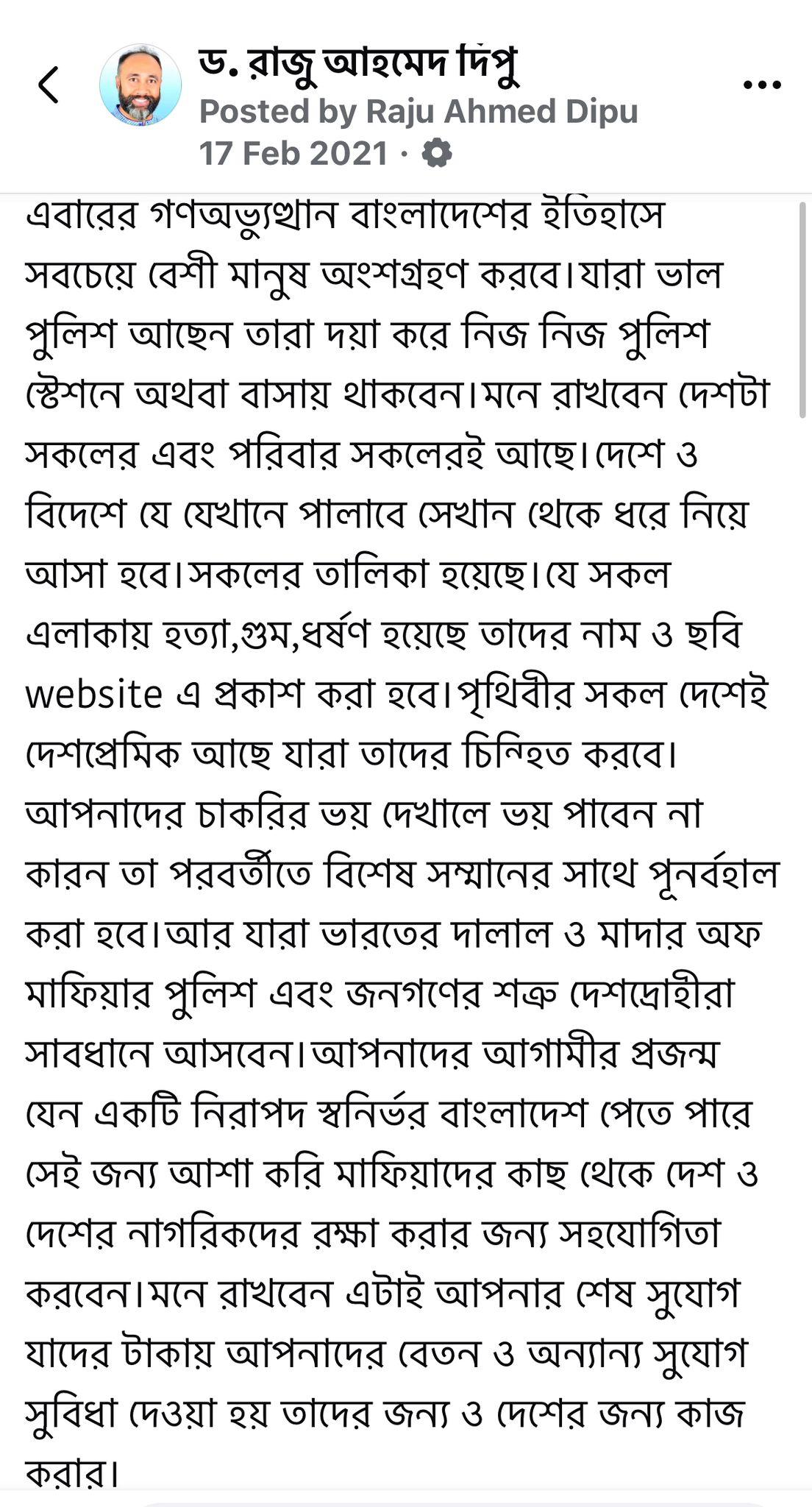
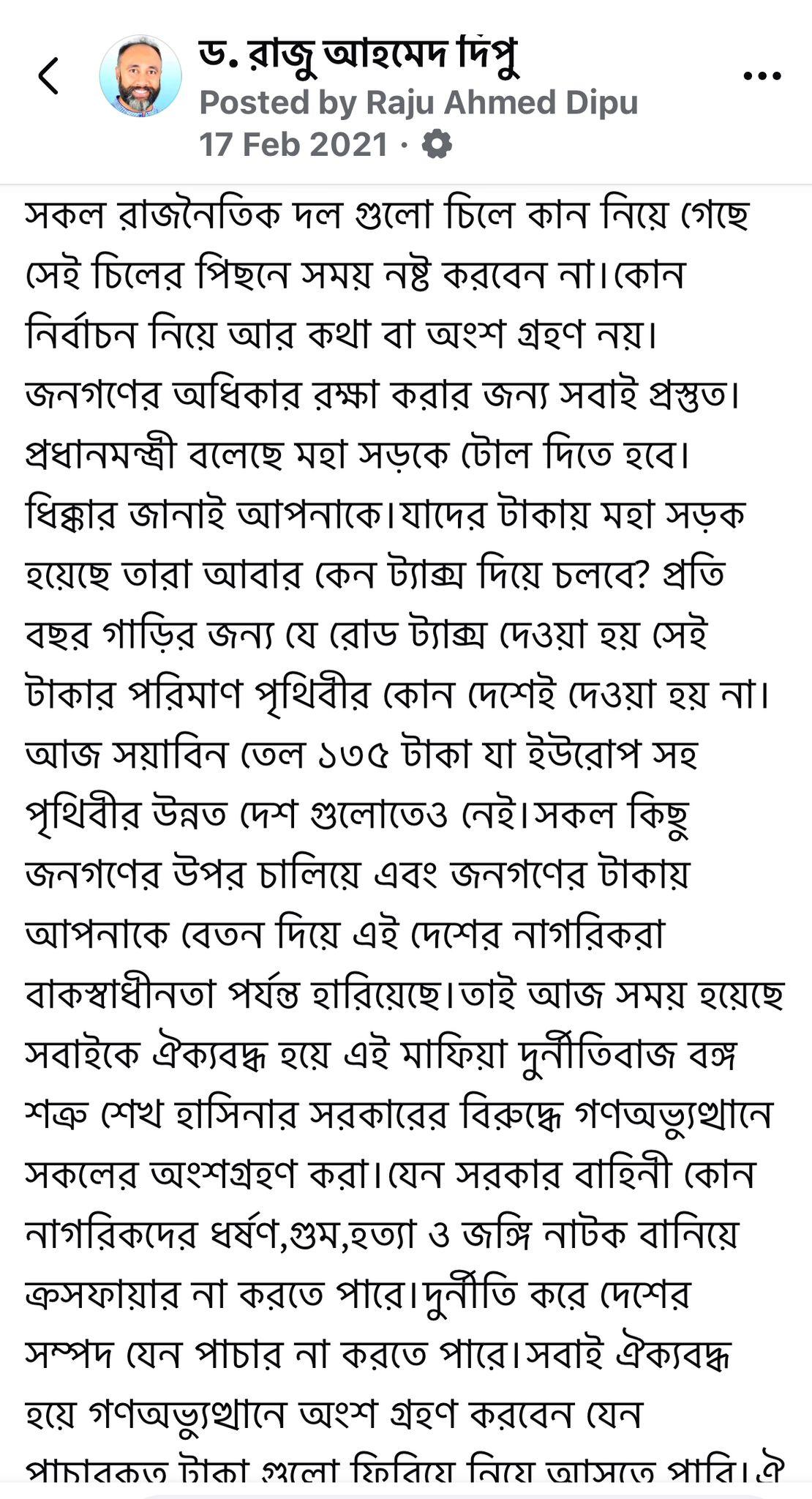
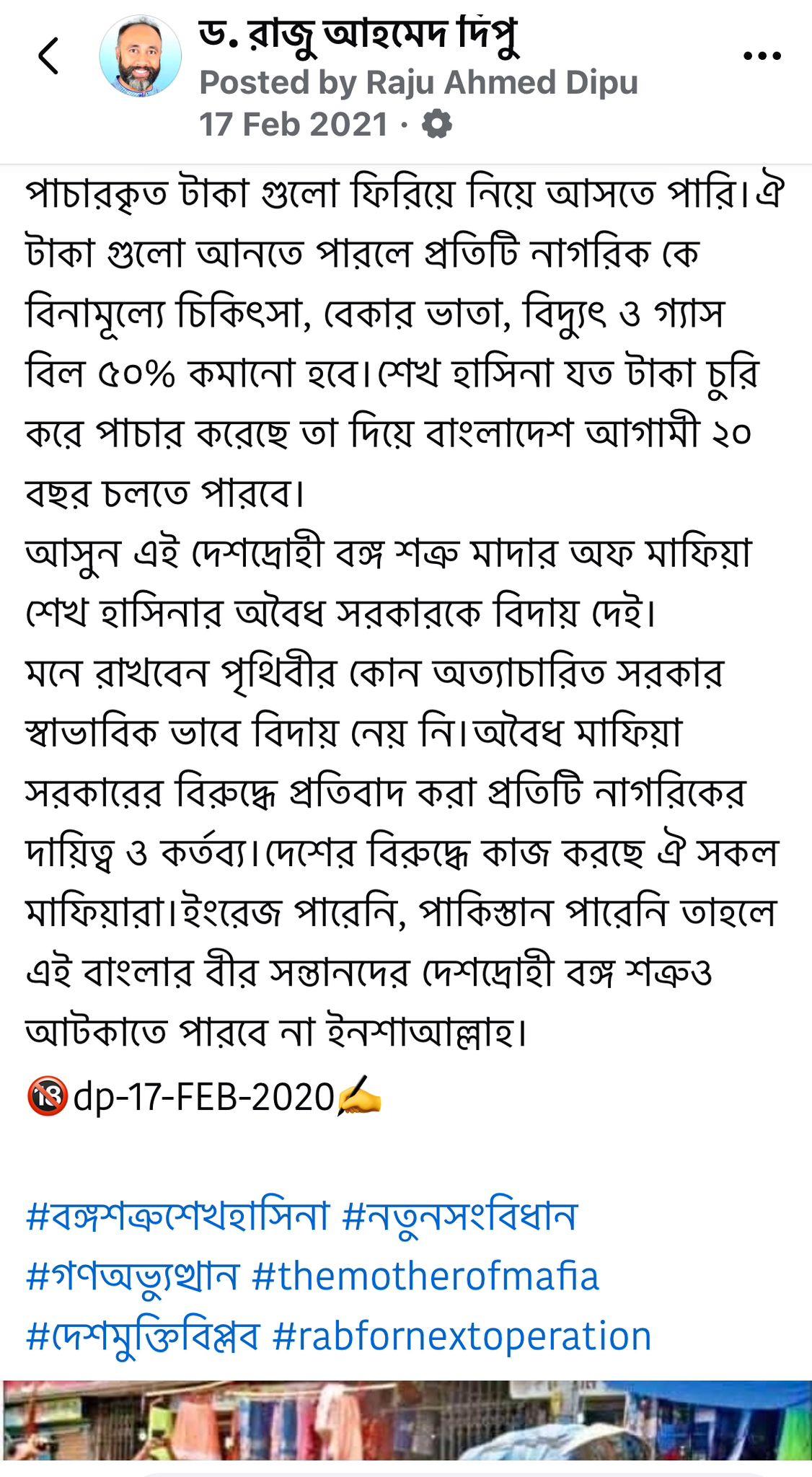
All records relating to the Uprising—including videos, texts, research papers, and public declarations—are currently being archived at the following platforms:
BangladeshKnowledge.com
BengalSultanate.com(Historical Perspective Series)
CountryPolicy.com
During the course of the Uprising, Dr Dipu obtained a range of confidential documents from Gonobhaban through his network of supporters. These included:
The original appointment letter for Sheikh Hasina's first term as Prime Minister (signed by the President in 1996)
A comprehensive list of individuals allegedly involved in criminal activities across Bangladesh
A classified registry of high-ranking government officials reportedly linked to Sheikh Hasina’s inner circle
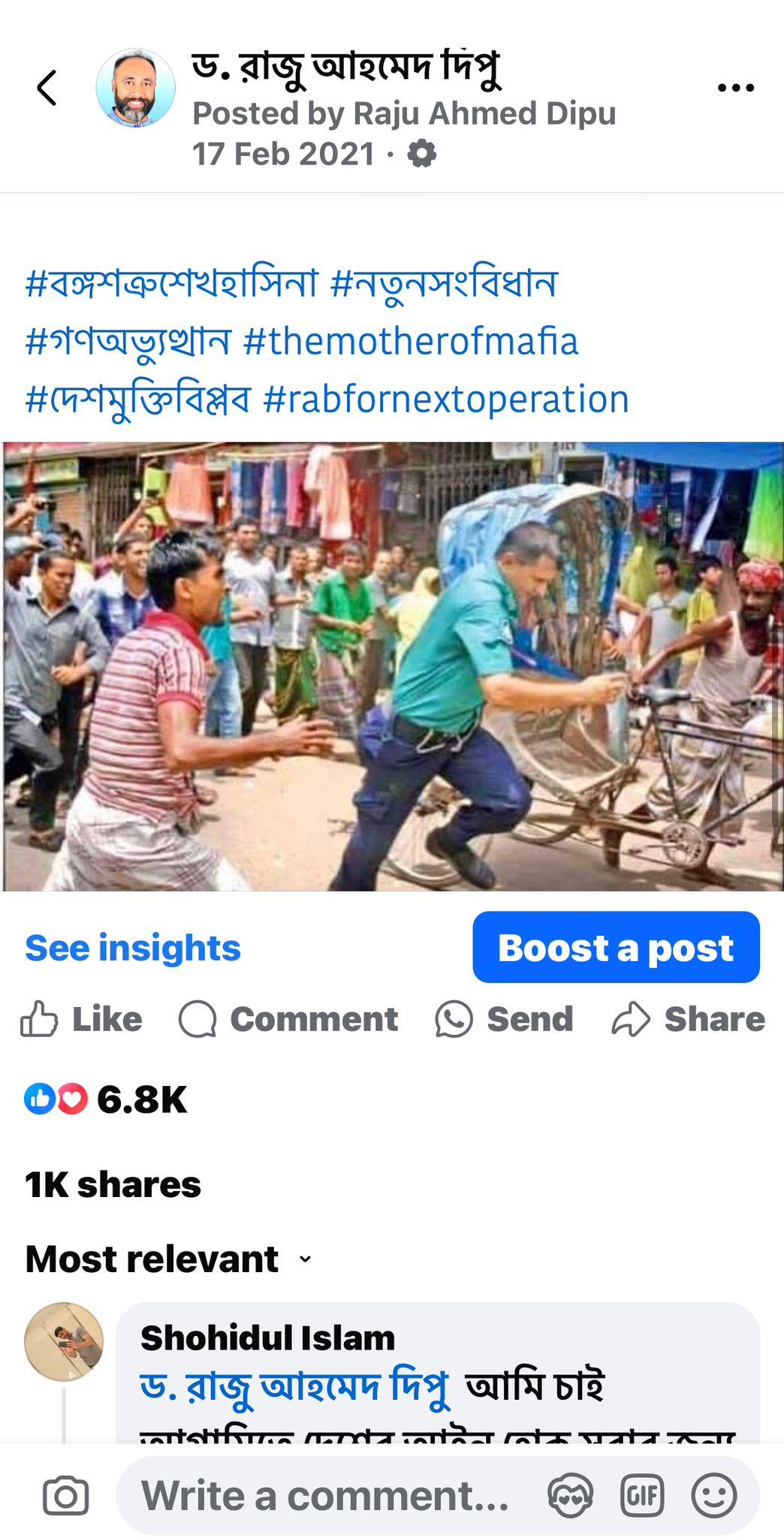
“The future of Bangladesh lies not in submission, but in civic clarity. Let the Uprising be not a call to conflict, but a commitment to national character.”
— Raju Ahmed Dipu, Uprising Declaration, August 2024
The Bangladesh Uprising (2020–2024) will be remembered as a digital-era civic movement—anchored in constitutionalism, moral reason, and principled dissent. Whether history defines it as a revolution or a reformist campaign, its impact on public memory and democratic consciousness remains undeniable.
Admin Desk
Bangladesh July–August Revolution 2024
